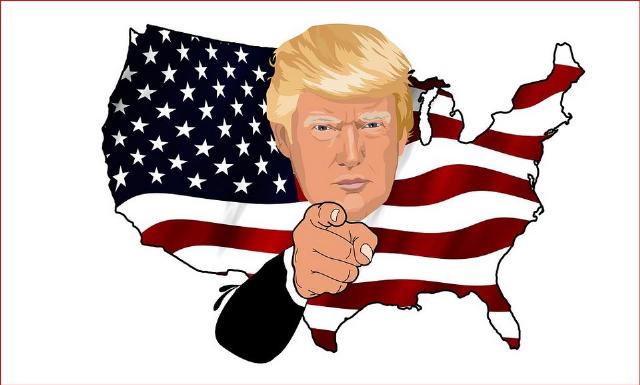Donald Trump, free trade champion
Victor Davis Hanson among others has been wondering aloud and in print why, if tariffs are bad, do so many countries have them on U.S. products? He is right -- tariffs are bad in that like any tax on a market they reduce trade and people trade with each other because both sides expect to benefit, and often, each side of a trade does gain. Or, as has been said about protection in general, it is when you do to yourself in peacetime what your enemies would do to you in wartime.
As an aside, if you tax anything, you get less of it. Government must raise funds via taxation even if the U.S. government raises too much money and wastes lot of it. If you raise funds taxing markets or exchange with tariffs or sales taxes, you reduce trade domestic or international. If you tax income, then you reduce income generation or work, investment in tools, and business formation. A case can be made for taxing markets rather than income, but that is an issue for another discussion.
Since tariffs reduce mutual benefit or the gains of each party on each side of trade, why do so many countries have them? Why have tariffs been so attractive to Democrat and Republic presidents alike? Part of the answer is that in any country there are people who will benefit from a tariff, even if society as a whole will lose.
The producers of a product, including both owners and workers, in protected industries gain, again even if society loses. So, producers often lobby governments to impose tariffs to protect their industry.
Thus, weak politicians around the world buckle under to groups that benefit from tariffs, hoping to get them as political allies and gain their votes in elections. These are concentrated benefits that only a few obtain, but the few really notice their gains. Sure, there are costs for society, but these costs are spread over many more people and the weak politician hopes they will not be felt as much nor cost them many, if any, votes.
Of course, in Donald Trump the U.S. has anything but a weak politician. So, what is he doing? He has said at various times he favors free trade, but that trade now is anything but free for U.S. goods. What he may be doing is providing cover for weak politicians around the globe. Mark Carney, the new prime minister of Canada, has not been able to stand up to the Canadian dairy farmers’ lobby, but he may well have to now, faced with the Trump tariffs. And he can say to the Canadian dairy farmers, “Don’t blame me, it’s that Trump guy.”
Over the next few months lots of weak politicians around the world may be forced to stand up to various tariff pressure groups in their countries, saying, “It’s not me, but that Trump guy.” If this comes to pass, President Trump may become the greatest free trader in world history. And if that comes to pass, as usual, he will get little to no credit for it.
James L. Swofford is a Professor of Economics in the Department of Economics, Finance and Real Estate at the University of South Alabama.
Image: Pixabay
FOLLOW US ON
Recent Articles
- Biden's National Censorship Regime
- Four Years, Five Fiascos: The Toll of Government Overreach
- The Legacy of the Roberts Court
- Parental Rights at Risk from Tyrannical State Overreach
- Alexander Hamilton: A Brilliant and Conflicted Leader
- The Death of the Center-Left in America
- ‘Make Peace, You Fools! What Else Can You Do?’
- When Nuclear Regulation Goes Awry
- The Danger of Nothing
- A New Pope With Courage
Blog Posts
- Pope Francis kicked an important can down the road
- Media hypocrisy: Hegseth must go because he’ll get us all killed
- Britain bans French philosopher who conceptualized the 'great replacement' theory, from entering country
- AOC versus visionary leadership
- The color revolution waged by our judiciary
- Fredi Otto, the new Greta Thunberg
- Why Democrats should become Republicans
- Terrorism works?
- Are we prepared for a new Chinese period of the warring states?
- Trump challenges the Fed
- The last Austrian standing
- Tim Walz: helping China colonize Minnesota?
- Another insubordinate officer?
- Keeping terrorists in America
- Celebrate Earth Day by not burning a Tesla







